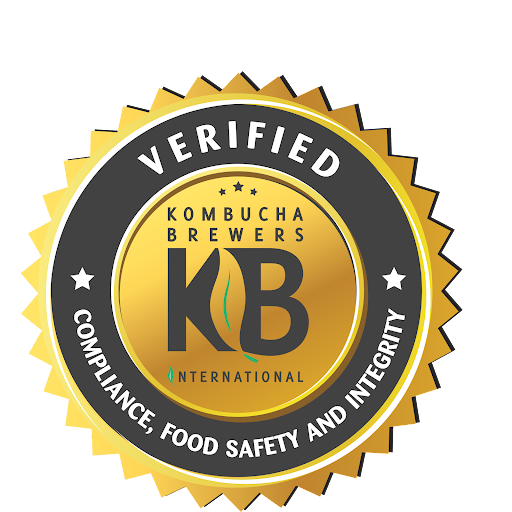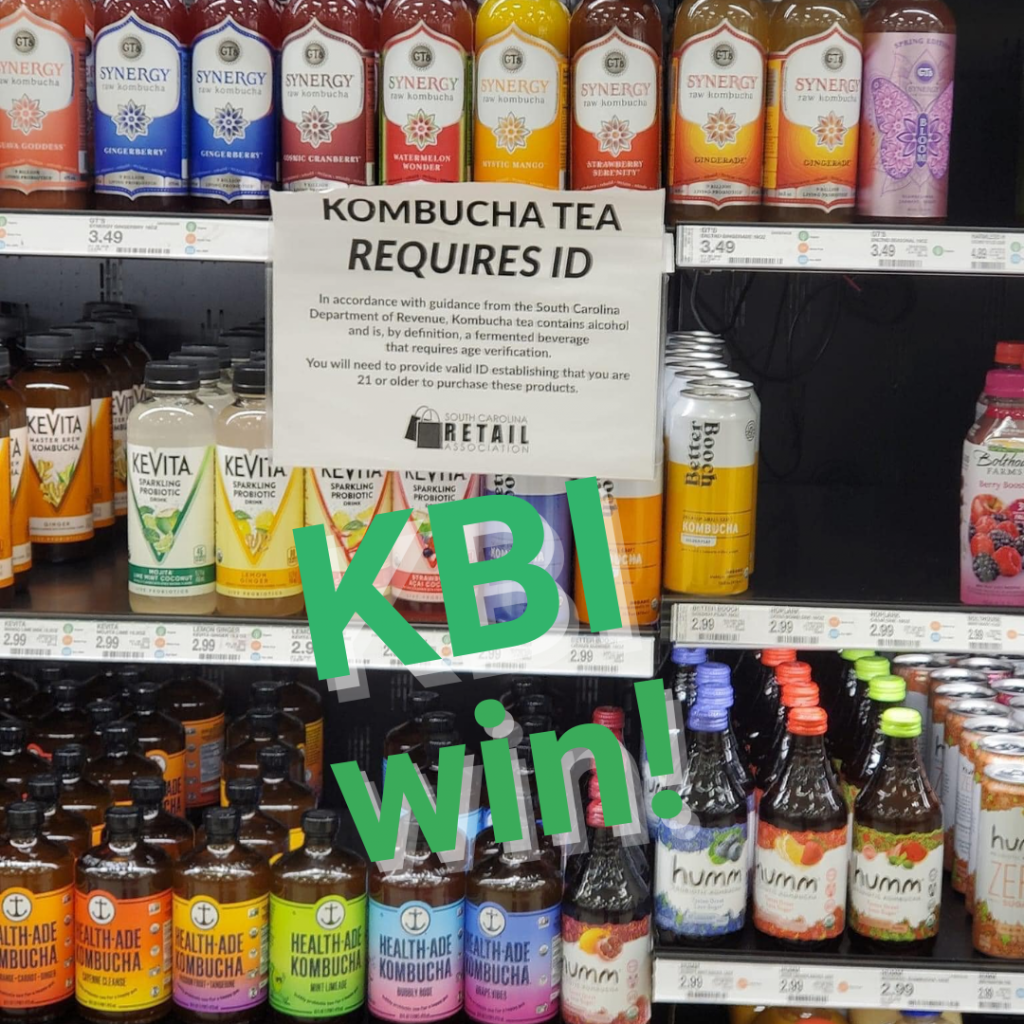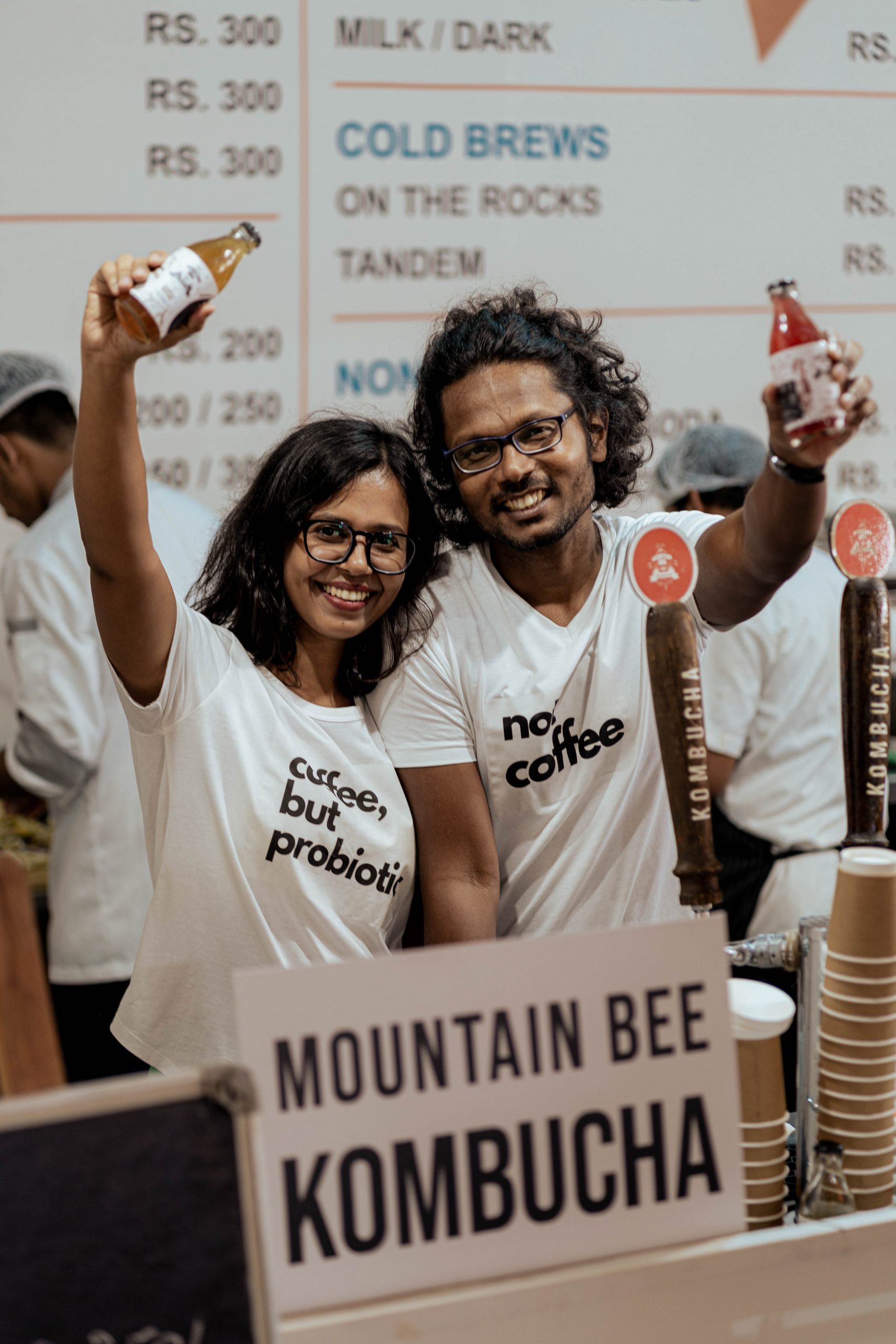
About Us
Menu
Advertising
Menu

Recently, the Department of Revenue in South Carolina was posed a curious question. Is kombucha considered a “similar fermented beverage” to beer? This question created a domino effect and some confusion as to how kombucha with an ABV of 0.5% and below ought to be regulated and by whom.
“Crisis creates community” quipped KBI President, Hannah Crum upon receiving urgent emails minutes apart from Chairman of the Board, Zane Adams of Buchi Kombucha and GT Dave of GT’s Synergy Kombucha. Those emails spurred immediate phone calls to the South Carolina Retail Association (SCRA), helmed by Lee Ann Watson, to learn more about the notice that had just been sent out from their organization.
She pointed KBI to the SC DOR as the body that had issued a guidance indicating they were looking into the matter and that out of an abundance of caution, they advised retailers to start carding anyone purchasing kombucha.From there, web searches revealed that this issue had been brewing for a month or so before it came to KBI’s attention according to a blog post by Brook Bristow of Bristow Beverage.
Health-Ade, Humm, and Brew Dr all reached out to share resources and support. David Ransom of McDermott, Will & Emery, KBI’s lobbying firm and legal counsel, also weighed in and offered advice.
Ultimately, after 3 weeks of intense conversations and sharing of resources, the SC DOR issued an updated guidance indicating that kombucha would NOT BE REGULATED LIKE ALCOHOL! A huge win for the industry and another example of KBI’s advocacy in action. Read the updated guidance on the SC DOR website.
The confusion stems from a statute that defines “nonalcoholic or non-intoxicating” beverages in their Tax Code as follows:
(1) all beers, ales, porters, and other similar malt or fermented beverages containing not in excess of five percent of alcohol by weight;
(2) all beers, ales, porters, and other similar malt or fermented beverages containing more than five percent but less than fourteen percent of alcohol by weight that are manufactured, distributed, or sold in containers of six and one-half ounces or more or the metric equivalent; and
(3) all wines containing not in excess of twenty-one percent of alcohol by volume.
One of only 4 states with this type of definition on the books, it was intended to allow beer and wine to be sold on Sundays. Since alcoholic beverages up to 6.5% ABV are considered “nonalcoholic” why then would this impact kombucha? In lieu of a definition of non-alcoholic beverage that mirrors the Federal definition of anything below 0.5%, it considers any beverage from 0-6.5% ABV to be under their regulatory and taxable purview.
When these laws were written and adopted in 1996, the commercial kombucha industry was in its infancy and was not sold in South Carolina at that time. Clearly the lawmakers were not intending for this definition to include kombucha, water kefir, or any of the traditionally fermented low-alcohol beverages that have become more popular in recent decades.
KBI is actively collaborating with a wide variety of stakeholders to assist lawmakers in better understanding what exactly is kombucha and how its materially different than beer or other high alcohol ferments.
Fermentation is …(an) anaerobic (non-oxygen-requiring) pathway for breaking down glucose, one that’s performed by many types of organisms and cells. In fermentation, the only energy extraction pathway is glycolysis, with one or two extra reactions tacked on at the end.1
Vinegar is the product of a two-stage fermentation. In the first stage, yeast convert sugars into ethanol anaerobically, while in the second ethanol is oxidized to acetic (ethanoic) acid aerobically by bacteria of the genera Acetobacter and Gluconobacter.2
Vinegar production dates back at least to 200 BC, and it is an illustrative example of microbial biotransformation.3
The “microbial biotransformation” of sugared tea that defines kombucha is a two-step process. First, ethanol is created through fermentation of sugar by yeast. The yeast secrete an enzyme, invertase, that splits the disaccharide compound known as sugar into its monosaccharide components – glucose and fructose. Fermentation creates CO2 (carbon dioxide) and ethanol.
Then through respiration, acetic acid bacteria (AAB) convert the ethanol produced into organic acids – acetic and gluconic acid primarily with some lactic, glucuronic and malic depending on the substrate (ie type of tea/sugar being fermented).
Trace amounts of ethanol remain as a natural preservative that prevents pathogens from colonizing the liquid. Several studies have shown kombucha to be antimicrobial against a wide range of common pathogens including Salmonella, Listeria, E. coli and many others.
Of course, anyone brewing “Hard Kombucha” would be subject to all the laws regulating alcoholic beverages as they are intentionally created to have a higher alcohol content to be consumed by adults of legal drinking age.
The KBI Code of Practice definitions of Hard Kombucha clearly indicate that non-native yeasts need to be added to yield a higher alcohol content.
3.8. Hard Kombucha: A kombucha which is crafted to yield a higher alcohol content than traditional kombucha using non-native yeasts or combining with higher alcohol containing beverages such as beer, cider, wine, spirits, etc. These products contain an alcohol content greater than 4% ABV and are subject to local excise taxes.
3.8.1. Crafted Hard Kombucha: A traditional kombucha fermentation to which additional non-native yeast is added at a later phase resulting in a higher than possible alcohol content.
3.8.2. Spiked Hard Kombucha: A kombucha to which alcohol is added to yield a higher alcohol beverage. Could also be termed “Kombucha Cocktail.”
Kombucha, water kefir, ginger bug, milk kefir, and a wide range of traditionally fermented beverages have been consumed by humans since the dawn of time. The trace amounts of ethanol as discussed above serve a specific preservative function with a medicinal side benefit of making it easier to absorb the nutrients.
While it would be wonderful to create a new beverage category, the process is long and arduous and requires a lot of financing for education and lobbying. As such, KBI has chosen to specifically focus on updating the Internal Revenue Code (IRC) specifically for kombucha to raise the threshold for taxation from 0.5% ABV to 1.25% ABV which harmonizes with culturally similar countries in North America and across the globe.
We hope that you will support our lobbying efforts and sign our petition as they ensure that as an industry we are able to self-regulate and be compliant, especially when the “laws of man are more closely harmonized to the laws of nature.”
Anyone who regularly enjoys kombucha knows from experience that it is non-intoxicating and consumes it for the wide range of health benefits it provides. KBI is process agnostic as “any kombucha is better than no kombucha.” Energy drinks, sodas, sugar-laden, chemical-laden and non-fermented “probiotic” sodas are capitalizing on a trend while also tricking consumers into choosing cheaper products with few if any benefits and oftentimes, in the case of sodas and energy drinks, “poison in pretty packages pimped by pretty people.”
The KBI Code of Practice aims to preserve the traditional fermentation processes with manufacturing controls applied to create safe, nutritious beverages that can be accessed by anyone. We also believe that educated consumers make intelligent choices. The KBI Seal Program will ensure that “what’s on the label, is what’s in the bottle.”
If the last two years have taught us anything, it’s that health needs to be a top priority at all times. Why not go to the root cause and support your microbiome with traditionally fermented foods and drinks!

No spam. We never sell your data. Update your preferences or unsub anytime.

Honey Islam, Mountain Bee Kombucha, Indiranagar, Bangalore Q: When did you first discover kombucha? A: I first encountered it in 2016 at an arts festival

Nicole Leon, Verde Sol, Belen, Costa Rica Q: When did you first discover kombucha? A: I first discovered kombucha 5 years ago. Q: Why did

Michele Vanlangenaeker, Wild Boocha Kombucha, Singapore Q: When did you first discover kombucha? A: In 2018 after my business partner discovered kombucha on a trip
Willie Kennon, Rogue Kombucha, Grants Pass, OR Q: When did you first discover kombucha? A: I started drinking kombucha around 2011 Q: Why did you